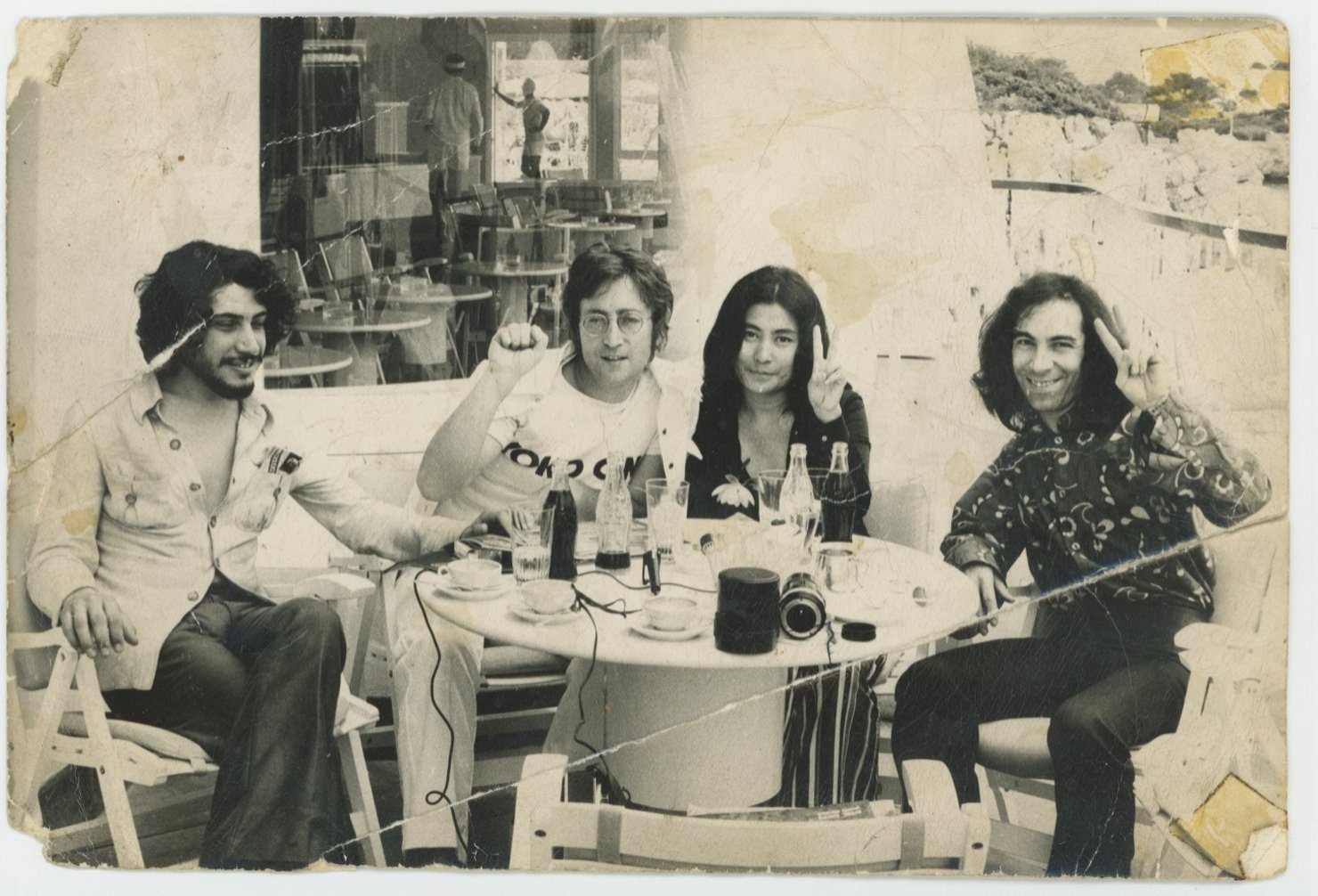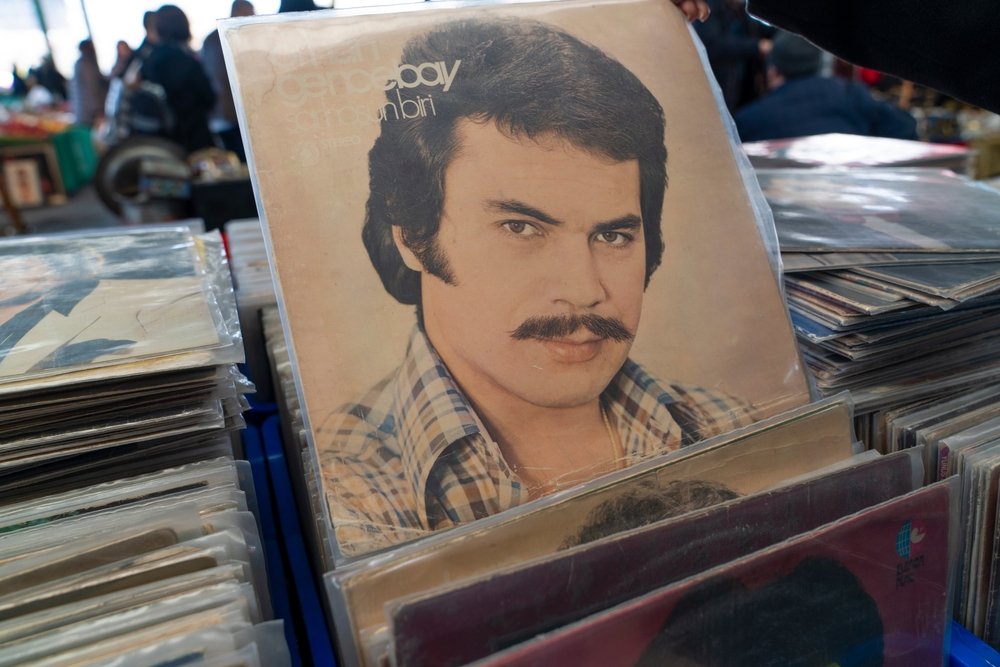© Turkuvaz Haberleşme ve Yayıncılık 2026
In the wake of his passing late Monday, the music world mourns the loss of an extraordinary talent, Erkin Koray, the Turkish rock star whose groundbreaking music and rebellious spirit left an indelible mark on generations of listeners. With his unique blend of rock, psychedelic and Anatolian folk influences, Koray defied convention and blazed a trail for Turkish music that continues to resonate today.
Koray had been living in Toronto, Canada, and was hospitalized at a medical institution for lung-related problems. His daughter Damla Koray made the announcement on her Instagram account, as she expressed her love for her late father, saying that his legacy will live on. “Your works will live on in our language, your love will live in our hearts, always and forever,” she said and announced that there will be a commemoration ceremony later for his fans.
The “father” of Turkish rock music passed away at the age of 82.
Erkin Koray’s journey started on June 24, 1941, in Istanbul. His early life was a prelude to his future as a musical visionary. The young Koray first started playing piano and then began playing the instrument that would change his fate and evolve the rock genre in Türkiye, the guitar.
It wasn't long before he formed his first band in the 1950s, creating a precursor to his legendary status. Erkin Koray and the Rhythmists emerged when Koray was a student at Deutsche Schule Istanbul (“German School of Istanbul”), a renowned private international high school in Istanbul’s music sanctuary Beyoğlu. The band played the hit songs of its time for school events, which must have allured the young Koray as he would resume his musical adventure after his graduation in the following years.
At this point, Koray had started writing songs, but none of them were yet enough to elevate him in his career. He completed his military service and then headed to Germany, where he apparently found his potential and true self in the art of rock 'n' roll. He joined the band Hiccups as a guitarist and later went on to form a new band with select members of the group. Long hair, a rebellious attitude, an electric guitar and psychedelic overtones marked the turning point for the Turkish rock legend in Hamburg.
He released his first EP consisting of only English songs in 1966, but it didn’t speak to the masses. He was propelled to stardom with the 1967 EP featuring the song “Kızları da Alın Askere” (“Enlist Girls in the Army”). It spread through radiowaves like wildfire. The 1960s marked a turning point for both Koray and the global music scene. As rock 'n' roll captivated hearts around the world, Koray found himself immersed in the burgeoning Turkish rock movement.
His second EP "Elektronik Türküler" (“Electronic Folk Songs”) released in 1974 was a pivotal moment that showcased his ability to blend traditional Turkish melodies with the raw energy of rock music. Tracks like "Cemalım" (“My Cemal”) and "Yalnızlar Rıhtımı" (“Dock of the Lonely”) became instant classics, capturing the zeitgeist of a generation seeking self-expression.
It was later understood that this EP marked the moment the Turkish rock genre was emerging, evolving and taking its place in the country’s music history. Koray was the catalyst of this evolution.
The legendary album “Erkin Koray – 2” came in 1967 and hit the records. It contained all-time popular songs including “Şaşkın” (“Confused”), “Estarabim,” “Fesuphanallah” and “Arap Saçı” (“Knotty Problem”). The album was a pure and apparent fusion of Eastern and Western musical elements, showcasing Koray’s evolution as a global artist while staying true to his roots. As the years rolled on, the rock star described the fusion as “Mesopotamian mode.” A single note of a song was enough to recognize this mode and say, "This is from Erkin Koray.”
His journey wasn't without its challenges. His bold fusion of musical styles often faced criticism from purists who believed in preserving traditional Turkish tunes. However, Koray's resilience in the face of adversity only fueled his determination to forge ahead. He remained steadfast in his belief that music should know no bounds, and his ability to seamlessly blend elements from diverse genres showcased his artistic versatility.
Back in the early days of 1970, something pretty remarkable happened in Cannes, France. Koray and John Lennon ended up unexpectedly crossing paths.
Lennon and his wife Yoko Ono were there to promote their avant-garde short film "Fly," which was being screened at the Cannes Film Festival. Koray was also in the town, really wanting to chat with the rock legend while his journalist friend accompanying him was itching for an interview.
Cannes was bustling with reporters from all over the world. But Lennon wasn't up for talking to just anyone. Just as the movie was nearing its end, Lennon and Ono left. The streets of Cannes turned into a bit of a chase scene as the journalists followed Lennon and Ono in their car. They were definitely on a mission to try and set up a meeting. Koray and the journalist rushed too. Koray thought he could catch Lennon for a chat, but security folks told him to hold up. “It was a bit weird, honestly,” said the journalist in an interview years later, talking about how Koray only got a few words in to try and set something up. It is true – Koray had said something to Lennon and convinced them to arrange a meeting.
The next morning, they all had breakfast at the hotel. Koray grabbed Lennon's guitar and played his song "Mesafeler" (“Distances”) for him – a “pretty awesome moment” the journalist said years later.

People wondered what exactly Koray said to Lennon to get that meeting. When he was asked later, Koray dodged the question with a grin and said, "Some things are best kept a secret." In a letter, Koray hinted that he wanted to respect Lennon's privacy by not sharing too much about the whole thing.
Long story short, that's how Koray and Lennon crossed paths.
As Koray's career progressed, his willingness to experiment and evolve remained a defining trait. The 1980s saw him embracing electronic music, incorporating synthesizers and digital sounds into his compositions. This artistic exploration showcased his adaptability and his determination to stay ahead of the curve. While some artists might have faltered in the face of changing musical landscapes, Koray's artistic integrity and fearlessness allowed him to continue pushing boundaries.
In 1985, he released the album "Ceylan" (“Gazelle”), which included another all-time hit song “Çöpçüler” (“Garbage Collectors”). Erkin Koray played all instruments on the album except the drums. In 1986, he released “Gaddar,” which hit the rock music lists in Türkiye, an experimental and brave endeavor amid the hype of arabesque music in the country. He was thereafter known as “Erkin Baba” (“Father Erkin”).
In Turkish arabesque music, "baba" refers to a term used to address or refer to respected, accomplished or older musicians who are considered masters or experts in the genre. Other legends in the arabesque genre, such as Orhan Gencebay, Müslüm Gürses and Ferdi Tayfur, were also given the honorary title of “baba.”

His charismatic stage presence was another integral part of his allure. Whether he was performing at sold-out arenas or intimate clubs, Koray's magnetic energy had an uncanny ability to connect with audiences on a profound level. His concerts were more than mere performances; they were transformative experiences that left concertgoers feeling invigorated and inspired.
“Unschooling” is an educational philosophy and approach that emphasizes learner-led, interest-driven and self-directed learning. Unschoolers believe that traditional formal education, with its structured curriculum, grades and standardized testing, may not be the most effective way for individuals to learn and develop their full potential. Unschooling is one way to achieve “deschooling” society, as it allows children to learn at their own pace and in their own way, following their interests and passions. The term deschooling was coined by Ivan Illich, an Austrian-American philosopher and social critic. Illich argued that compulsory schooling is a form of social control that does not benefit children. Koray was of the same idea as Illich.
As news of Erkin Koray's passing reverberates through the music world, it's clear that his legacy will endure. His trailblazing spirit paved the way for a new era of Turkish rock, and his influence can be heard in the works of countless artists who followed in his footsteps. Enduring melodies, the iconic Gibson Les Paul Custom guitar, defiant social perspectives and the distinctive "Mesopotamian mode" are just a few of the indelible imprints he left behind on the music world's canvas.
